Student Blog
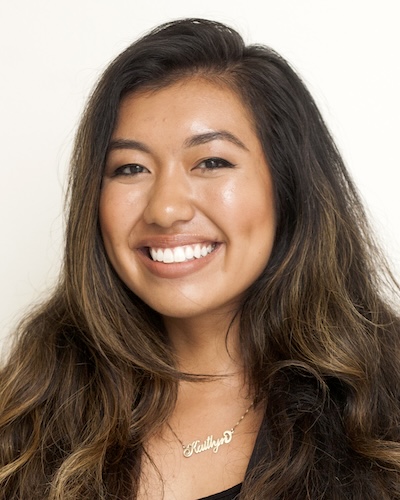
So Nice, I Graduated Twice ⟩
May 11, 2018, by Kaitlyn
Channeling my inner Elle Woods, I first off want to squeal and tell my fellow class of 2018, “We did it!!!”
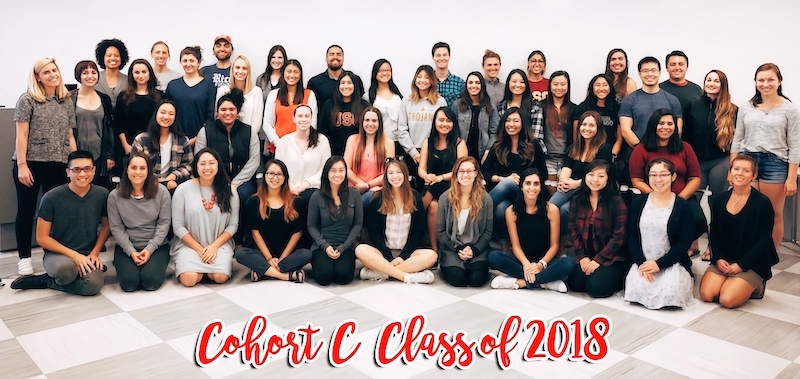
Class of 2018: Cohort C
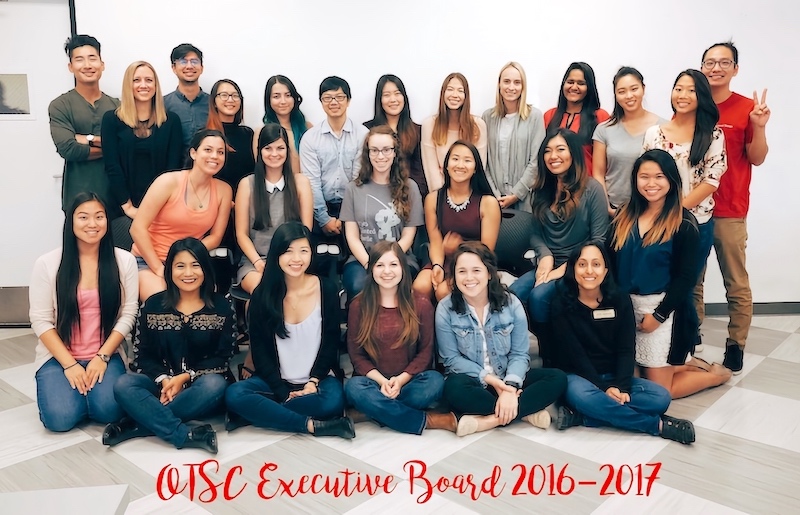
My first year on OTSC Executive Board
These past two years have been such a whirlwind, and I’ve had so many highlights that I know I’ll remember for a long time. I’ve stood in front of and presented to the largest crowds I’ve ever spoken to (upwards of 200+ individuals at a time), attended 5 conferences under scholarship across numerous cities and states, went on a Eurotrip with some of my best friends in the program, lived across the Pacific Ocean for three months (the longest I’ve ever been away from home, my friends, and my family), and learned about what it means to be the best occupational therapist I can be. Interspersed in these bigger events, life bestowed upon me lessons about myself, people, and life in general. I’ve learned and grown so much not only as an aspiring OT, but also as a person.
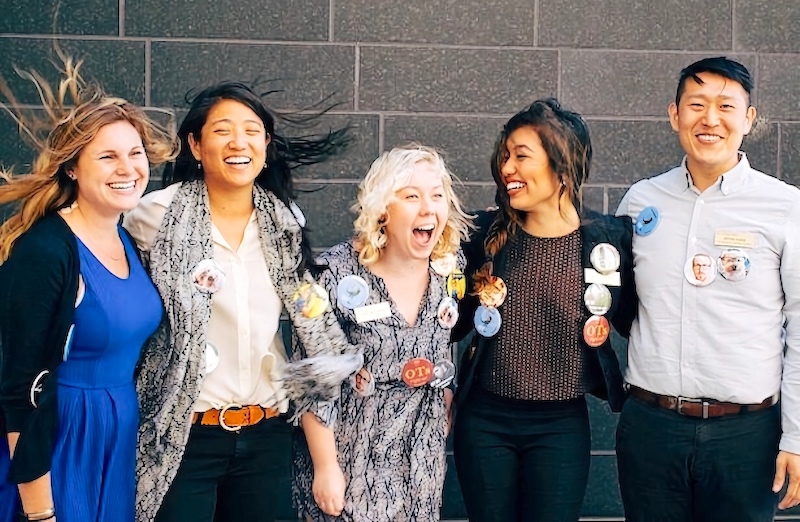
The Student Ambassador Team
Looking back on my experience in graduate school, these are a few things I would tell (and remind) myself. If you’re thinking about going to OT school as well, it may be helpful for you too:
Relax and do your best. You will be fine. | Work hard and do your best obviously, but don’t stress out too much about it. That 1 point you got off a test or assignment will not matter 20 years from now.
The power of influence (both good and bad) | You will meet so many people who you both will inspire and be inspired by. For the people you are inspired by, choose wisely. For the people you inspire, make sure you not only say what you mean, but live it out too. People are always watching, and what you do trumps what you say every time.
Remember your core values and live accordingly. | You will make a core values checklist during your first semester in the program. Look at it often. Are you living in a fashion that is congruent with what you believe?
Get to know the people around you and create meaningful relationships with them. | Again, you will meet so many different people. Get to know your peers, colleagues, friends, mentors, clinical instructors, and so on, on a deeper and more meaningful level. This life is about creating meaningful relationships.
Walk through doors that open up for you and take opportunities that fall into your lap. | Trust me, it will happen and it might even be a little scary. Everything happens for a reason!
Always remember the big picture. | You are in school because you want to positively change people’s lives and help them live life to its fullest. This is always the goal.
Remember to take care of yourself, have fun, and live your best life! | True: school is going to take up a huge chunk of your life. Also true: remember to live YOUR life too.
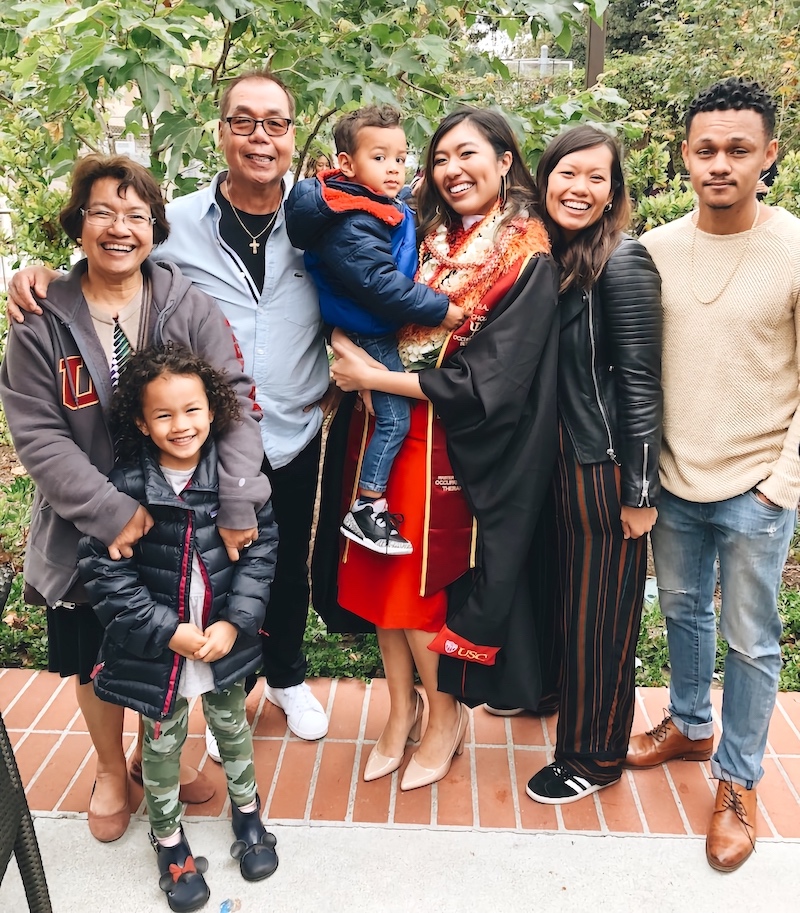
My amazing and incredibly supportive family!
I recognize there is absolutely no way I could have gone through graduate school alone. I am so thankful for Kimberly Kho and the Admissions team for providing guidance and support professionally and personally, my amazing Student Ambassador team (Ali, Erika, Caroline, Linah, and Bryan) for being the best group of people I could’ve ever asked to work with and for making what we do that much more fun and rewarding, the OTAC Student Delegate council for connecting me with OT throughout the entire state of California, OTSC Executive Board for being such an inspiring group of leaders, crazy Cohort C for being the most fun classmates to go through the program with, the Division’s faculty for always going above and beyond what is expected inside and outside of the classroom, and of course, my incredible and loving family and friends for helping me up through the lowest days and for walking alongside me during the happiest ones.
Thank you again USC Chan Division of Occupational Science and Occupational Therapy. What a journey it’s been, and I can’t wait to see where life takes me next.
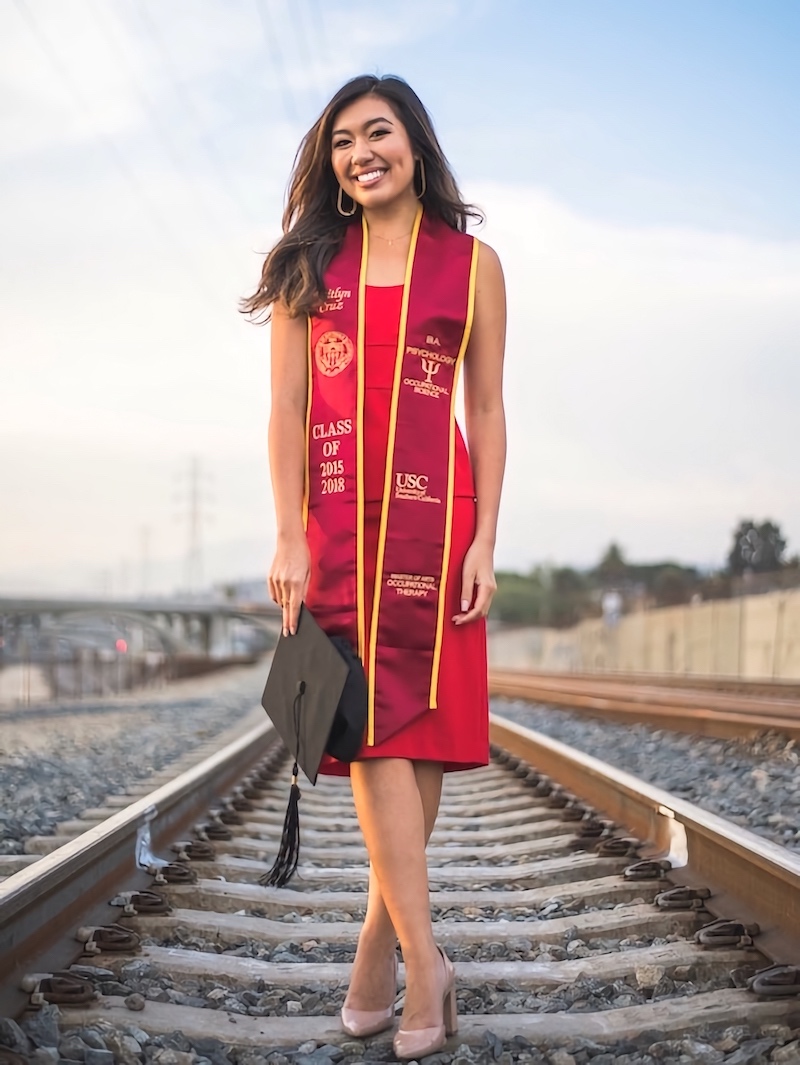
⋯
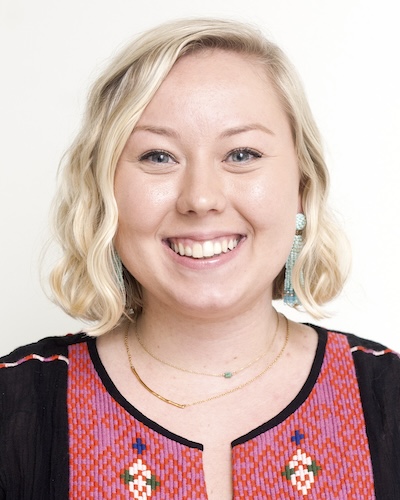
Final Reflections and Next Steps ⟩
May 4, 2018, by Caroline
Beginnings and Endings What are OS/OT?
I can’t believe I’m really saying this, but I’m officially done with ALL of my classes in the Entry-Level Master’s Program! I want to take this final blog post to reflect on the past two years in the program, and to share what’s coming up next for me! Warning: this one gets a little sentimental.
Over the past 2 years:
I’ve taken (and passed!) 22 classes. That’s included countless exams and the 4 Ps (papers, posters, presentations, and projects). Those classes have included so many opportunities for group work, which have encouraged me to see multiple perspectives, enhanced my communication skills, and have given me the chance to get to know so many of my classmates on a deeper level. Each class covered a different topic; I’ve learned about specific practice immersion areas, research methods, program development, leadership, therapeutic use of self, and so much more! I used this Spring semester to take elective courses to dive into pediatrics, the practice area I’m most interested in. Altogether the curriculum has prepared me to be a general practitioner, ready to work as an OT in any practice area.
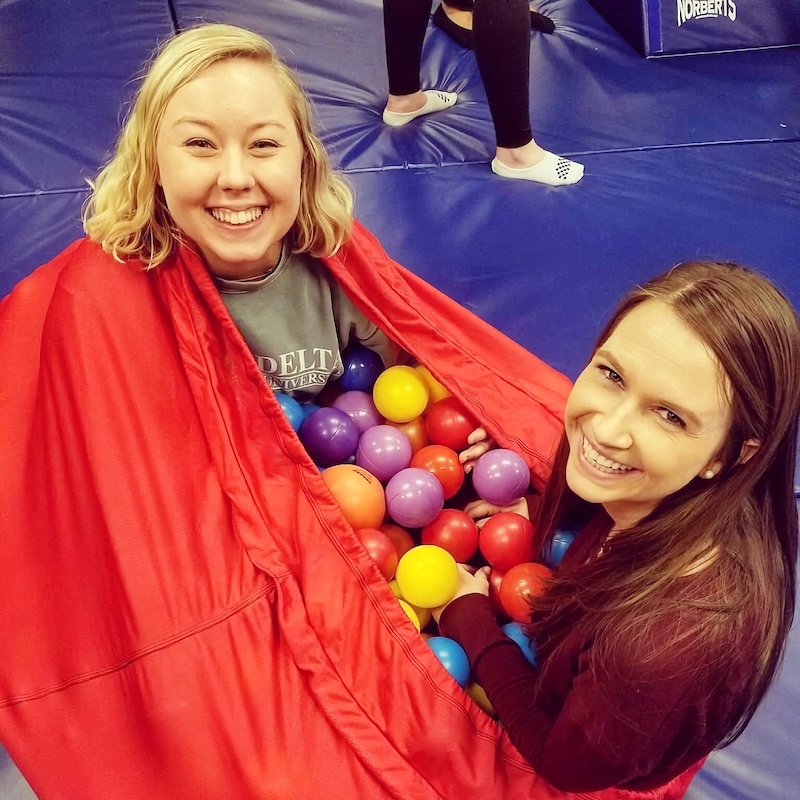
I’ve loved how active and hands-on many of the courses were! Here I am with my friend Niamh trying out a tactile sensory experience in the Pediatrics lab.
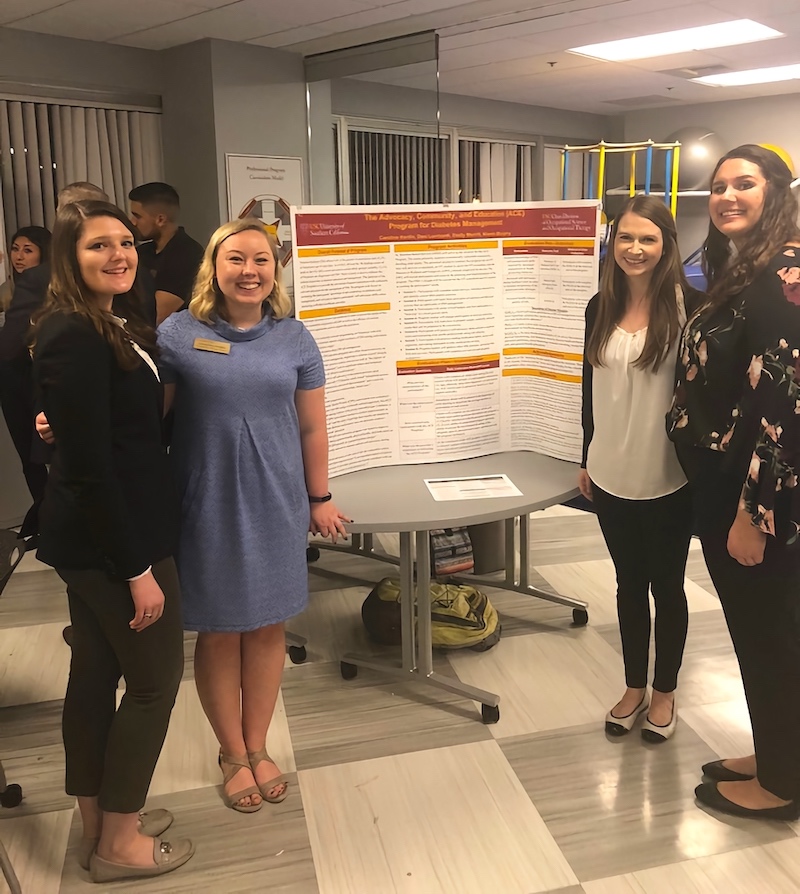
Presenting our diabetes-management program poster for the Occupation-Centered Programs for the Community Course.
In those 22 classes, I’ve been instructed by 26 outstanding faculty members, who each brought their own unique experiences and perspectives to the classroom and the course material. Seriously, the USC Chan faculty members are passionate, experienced, and understanding — they’ve truly made this learning experience a positive one. They’ve challenged my clinical reasoning and they’ve supported my development to becoming an entry-level practitioner.
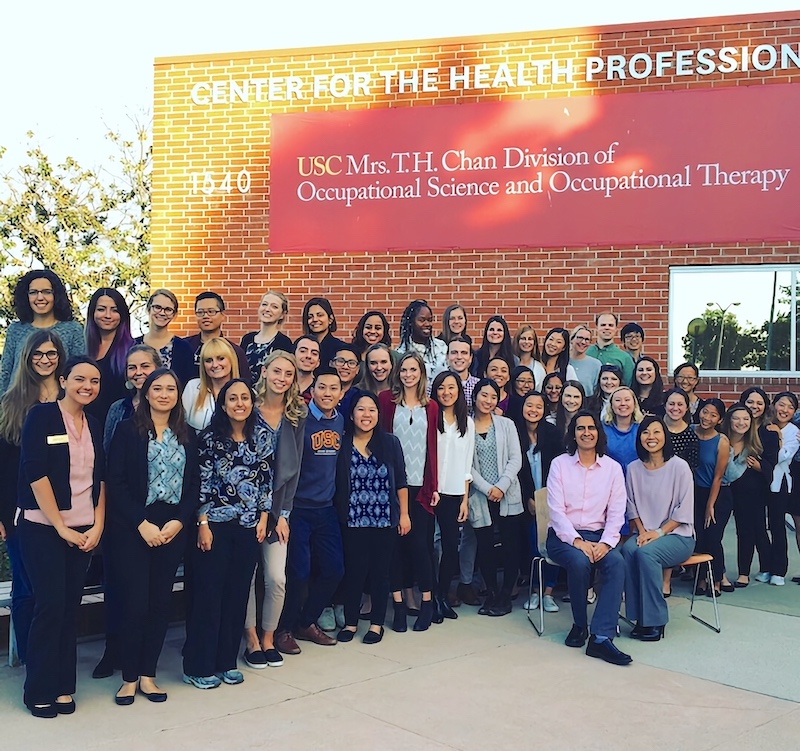
Cohort A after finishing our Pediatrics immersion with Dr. Diaz and Dr. Gunter.
I’ve learned and studied with 136 classmates. These students have come from so many unique backgrounds and will end up working in a wide range of different practice areas. The passion, drive, and enthusiasm in my class has been so impressive, but it has always felt like such a supportive group!
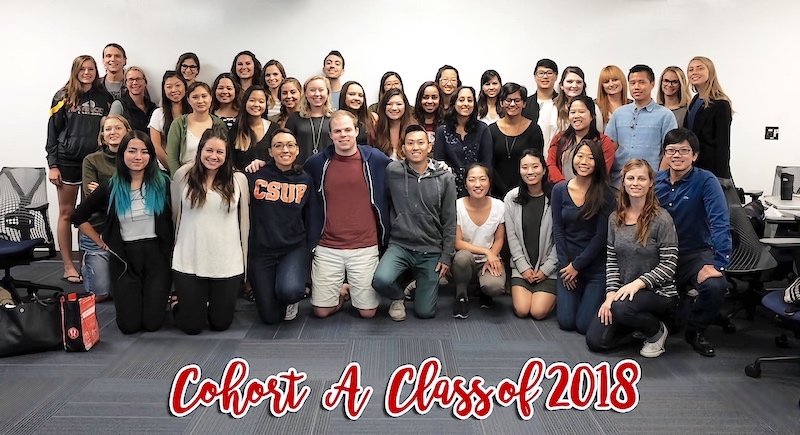
Spent hundreds of hours in class with the awesome Cohort A!
I was inducted into Pi Theta Epsilon, the National Honor Society for Occupational Therapy.
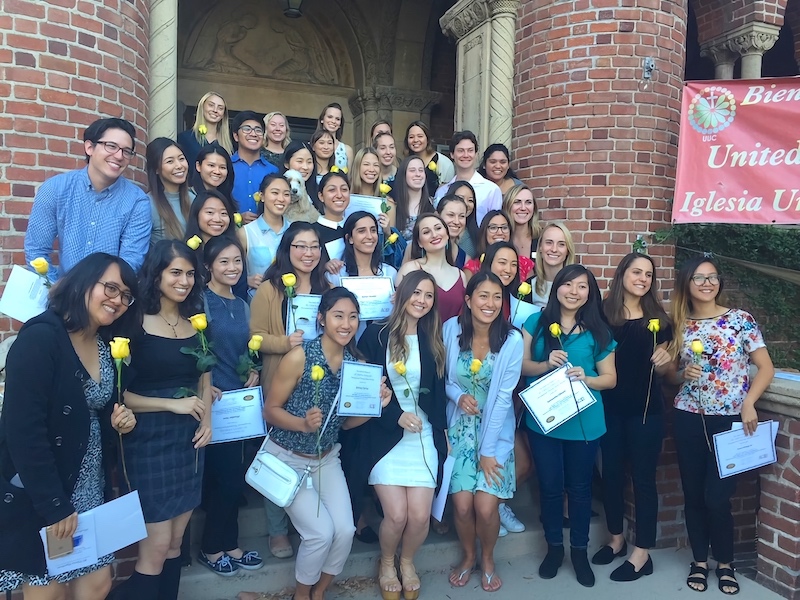
With my fellow PTE Inductees!
I completed 4 fieldwork placements (3 Level I and 1 Level II). Each placement was in a uniquely different practice area: an acute hospital setting, an outpatient forensic mental health setting, a community-based center for older adults, and school-based pediatrics. In each setting, I got to connect with real clients and work through the OT process with them to help them achieve their goals. It was in these environments where I felt the most challenged, but also the most rewarded; getting an A on an exam feels great, but actually helping a client feels WAY better! One more Level II Fieldwork to go this summer!
I’ve dedicated 350+ hours of work in this role as a Student Ambassador. I’ve had the honor of representing the Chan Division over the last year and half and sharing my experiences as a student in this program through this blog, but also by conducting tours and information sessions for prospective students on campus, presentations to pre-OT clubs at universities in Southern California, and tabling at health fairs. Serving as a Student Ambassador has been one of the highlights of my experience in the program, because of the opportunities and experiences it has given me, but also because of the people it’s brought me closer to. This position has allowed me to get to know my 5 amazing coworkers: Ali, Bryan, Erika, Kaitlyn, and Linah, none of whom I knew very well before starting in this role!
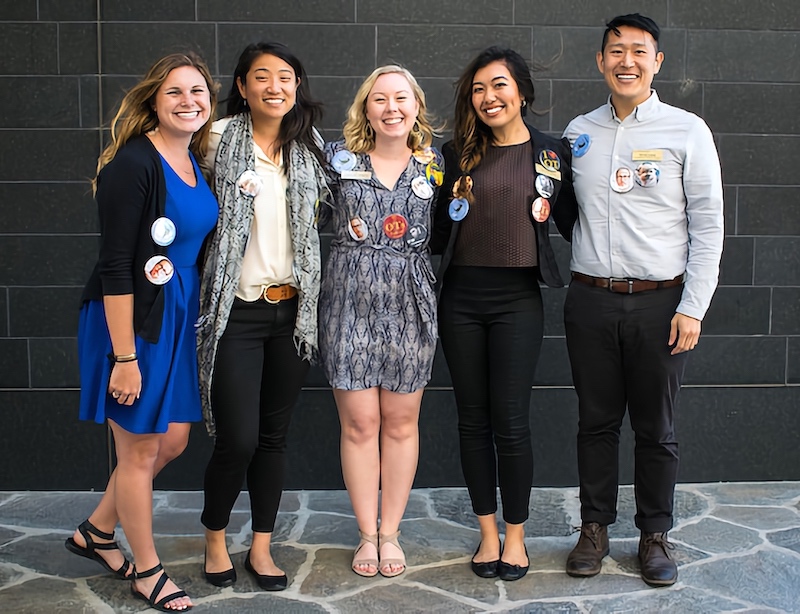
The fabulous Student Ambassador team I’ve had the pleasure of working with. Thanks for making work FUN!
I’ve also been so lucky to get to know my supervisors who oversee admissions, recruitment and events for the Division: Kim Kho, Liz Carley, Erin McIntyre, Amber Bennett, and Bianca Ojeda. It’s truly been a pleasure to work with and learn from these women!
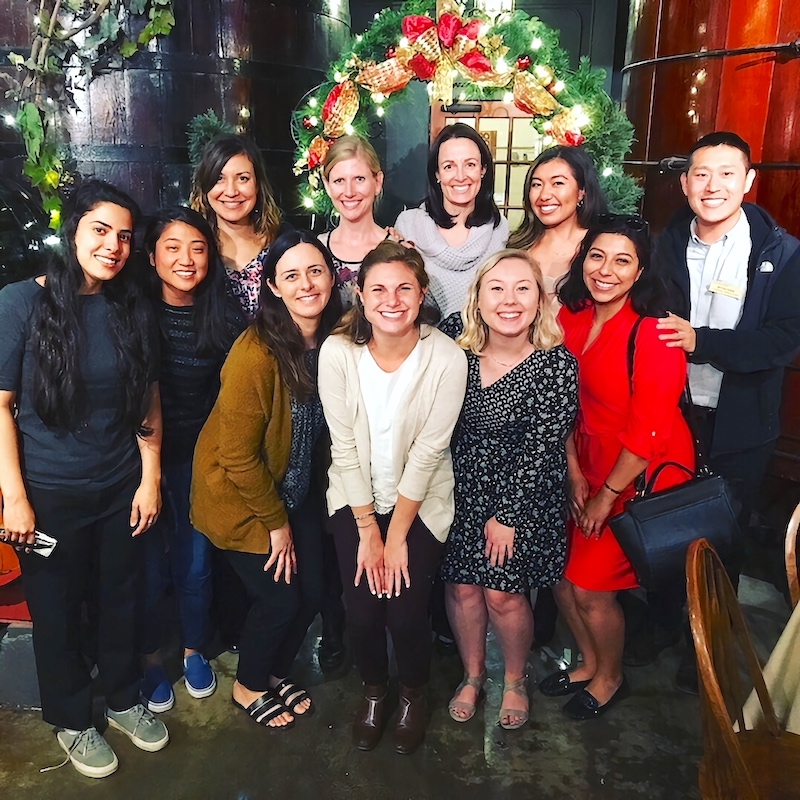
The Student Ambassador team together with the whole Admissions, Recruitment, and Events team at our end of the semester lunch!
These two years haven’t been ONLY class and work, however! OT students definitely understand the importance of lifestyle balance 😊
I spent 2 weeks in Australia for my leadership externship, where I learned about occupational therapy education and practice at Griffith University and their affiliate clinical sites.
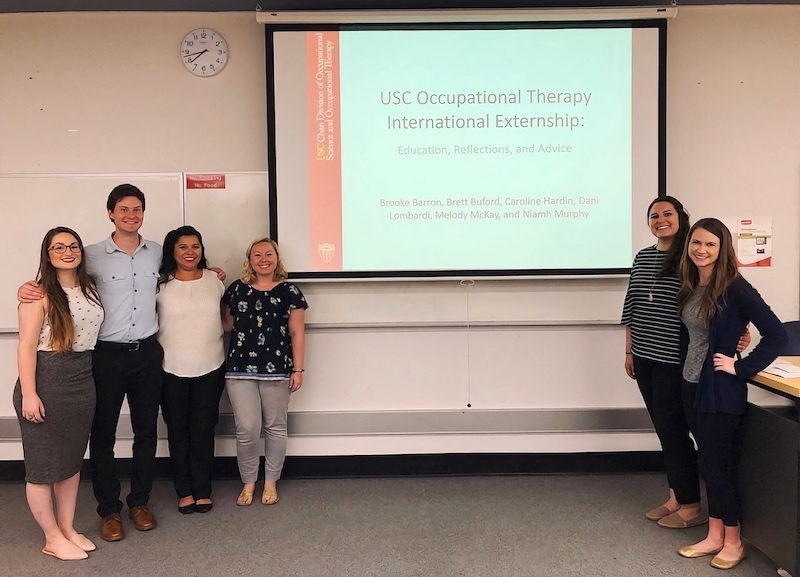
Presenting to Griffith University OT students and faculty about OT education and practice in the US!
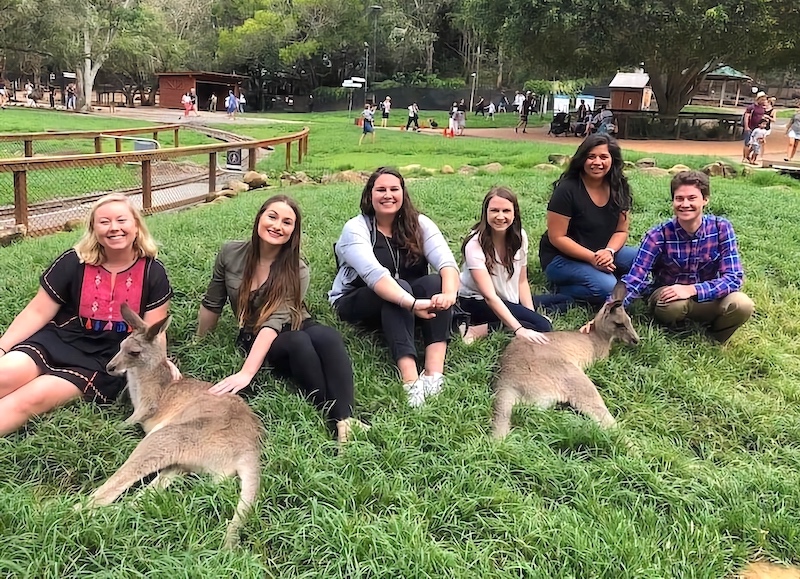
Hanging with some Kangaroos!
I’ve supported the Trojans at 11 home football games and tailgates, including 2 homecoming tailgates! Fight On!
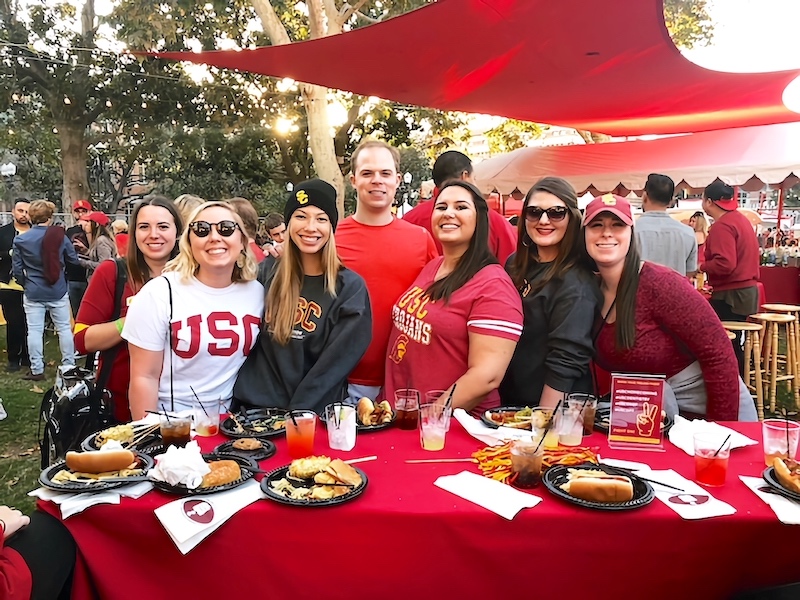
Prepping for the Homecoming football game at the Homecoming tailgate.
I’ve spent countless hours at the OT House not only studying, but also spending time with friends and talking about topics other than OT (No Homework Saturdays!!).
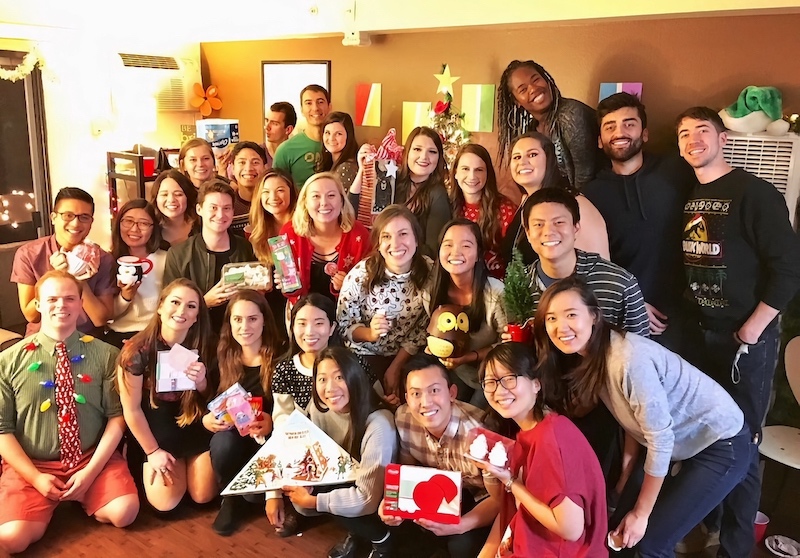
Holiday gift exchange at the OT House!
There’s definitely been time for a few parties, too!
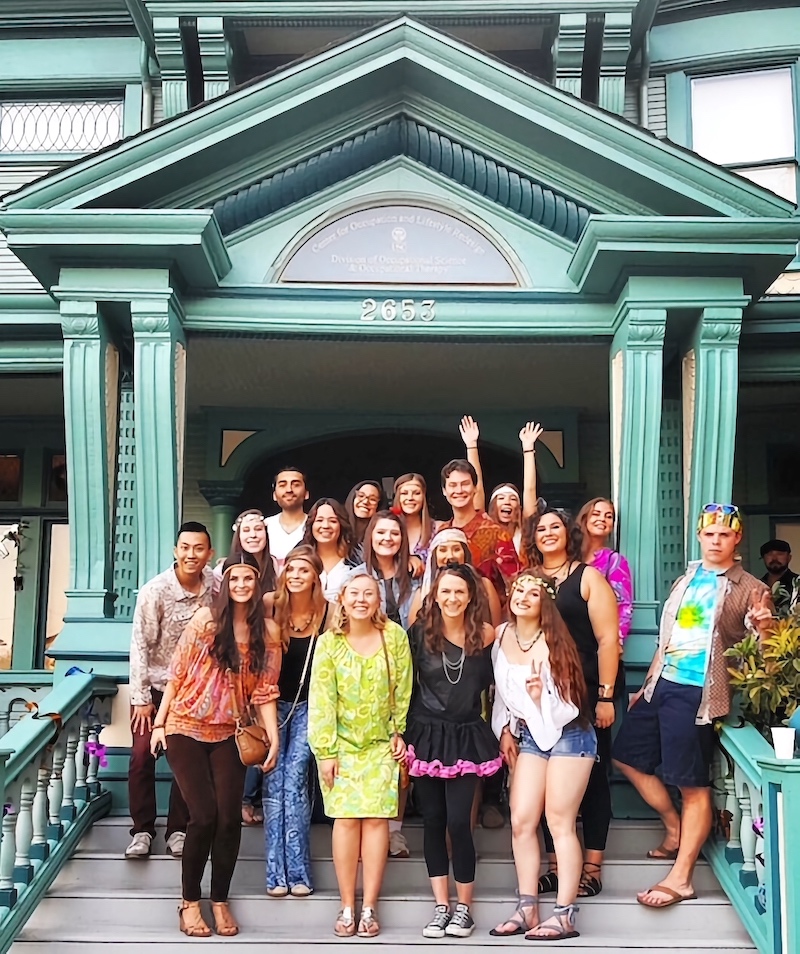
Celebrating the first summer session at the Decades Party, held at the Center for Occupation and Lifestyle Redesign. Love a good themed party!
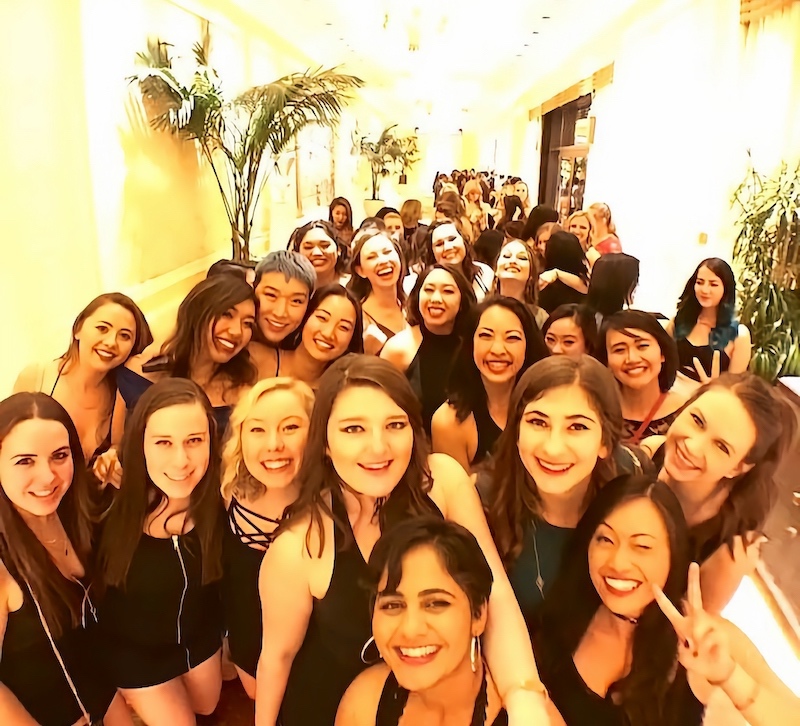
The annual OT Vegas trip in January.
Finally, I’ve made 7 incredible, lifelong friends in this program: Emily, Niamh, Dani, Brett, Brooke, Hanna, and Heather. I moved from North Carolina to Los Angeles to start this program. I was 21, had just graduated from college, and I was starting grad school in a new city where I didn’t know anyone — it was a scary transition! That feeling went away much quicker than I’d anticipated. I’m so lucky to have found a place in the group of friends that I did. These two years would not have been the same without the laughs, the support, the debriefs, the study sessions, the outings, and the dance parties.
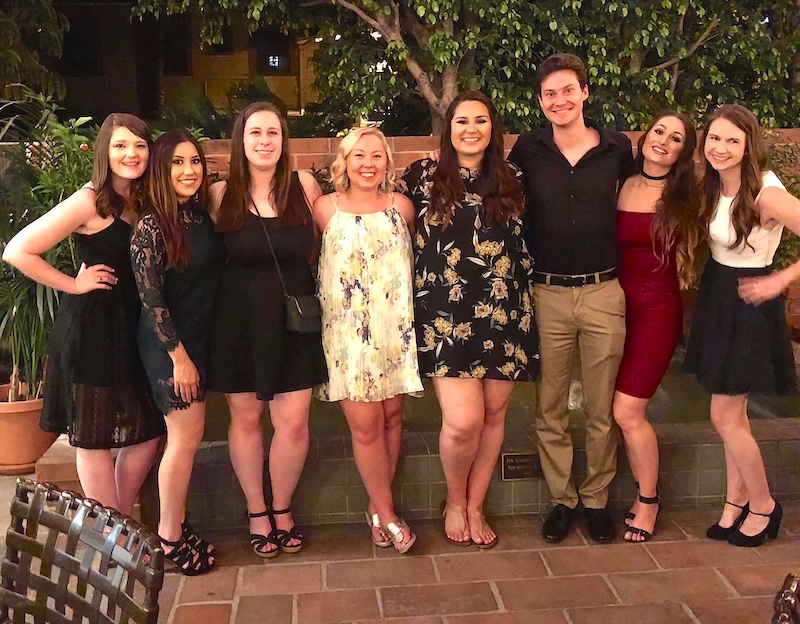
Celebrating finishing exams with my best friends at the end of year prom “ShoOT for the Stars”.
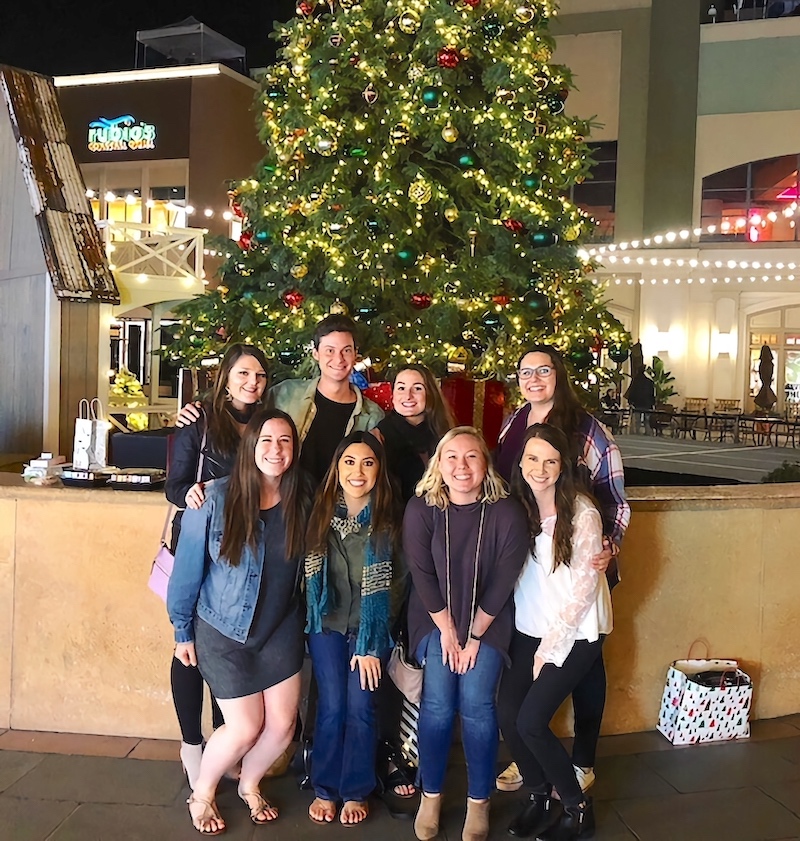
These 7 friends have made the past two years an incredible experience! In my very biased opinion, they are all going to make stellar OTs!
What’s next?
In a few days, I’ll be graduating from the Entry-Level Master’s program, but there are 3 additional things I have to do before I can call myself a registered occupational therapist: (1) Take the Comprehensive Exam; (2) Complete my final 12-week Level II Fieldwork experience; and (3) Take and pass the National Board Certification in Occupational Therapy exam.
I’m staying at USC to get my Doctoral degree (OTD); the program is 1 year and begins in August. I am pursuing the Advanced Clinical Practice track of the OTD, and I will be completing my residency at the USC University Center of Excellence in Developmental Disabilities (UCEDD) at Children’s Hospital Los Angeles. I’m looking forward to spending the upcoming year developing my clinical expertise in the clinical practice area of pediatric mental health!
I’ve wanted to be an Occupational Therapist since the 8th grade, and it’s surreal that I’m so close to accomplishing this dream! I’m so thankful for the learning experience I’ve had these past two years, and I’m looking forward to one more year at USC to gain advanced skills in OT! Thanks to my family, friends, fellow Student Ambassadors, and classmates for the support these two years. And, finally, thanks to the readers — best of luck as you pursue your OT goals!!
⋯
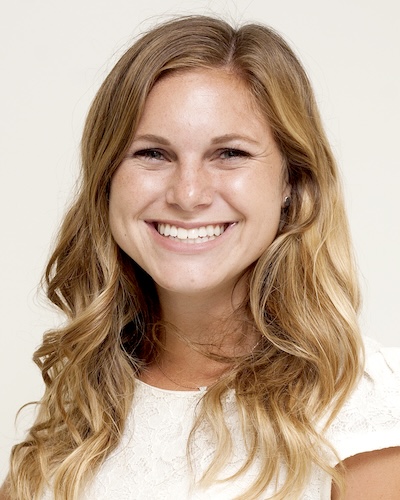
over and OuT! ⟩
May 4, 2018, by Ali
Classes Externships Getting Involved
As of 9:30AM today I completed my last final of my Master of Arts Degree in Occupational Therapy. This realization just hit me and the nostalgia is real. Although I will be continuing on with the USC Chan Division of Occupational Science and Occupational Therapy to complete me Doctorate of Occupational Therapy with The Huntington Library, Art Collections, and Botanical Gardens implementing inclusive programming for guests! I am so excited for this next chapter, but right now I want to take a moment to reflect on some of the great moments of this semester that got me to this point.
1. Externship
As Caroline, Erika, and Kaitlyn mentioned in their blogs over the last months this semester we were given the chance to create our own leadership experience to build our professionalism, communication, and overall understanding of occupational setting in a new setting. A classmate and I continued the work we began in OT 537: Occupation-Centered Programs for the Community. We worked with The Painted Turtle, which is an organization that provides year round camp based programming to children with serious medical conditions. Over the externship I was able to observe new leadership styles in a non-clinical based setting that does not currently have an occupational therapy on staff. We were able to use our occupational lens in a new setting. This opportunity was formative in my decision to complete my residency at The Huntington because I was able to solidify my passion for inclusive programming and the value OT has in community settings.
2. The American Occupational Therapy Association Annual Conference
In April I was able to attend my first national occupational therapy conference in Salt Lake City, Utah. I had no idea how much I was going to enjoy the conference and the opportunity to attend presentations given by researchers and leaders in the field that I have been reading about for the last five years. The chance to network with occupational therapists all over the country across so many practice settings was inspiring as I go out into the profession. I know there are endless possibilities in how to create my own practice. I was impressed and honored to be an occupational therapy student entering the profession with so many passionate and hard-working leaders. I am excited to start my residency and hopefully become one of the leaders someday!
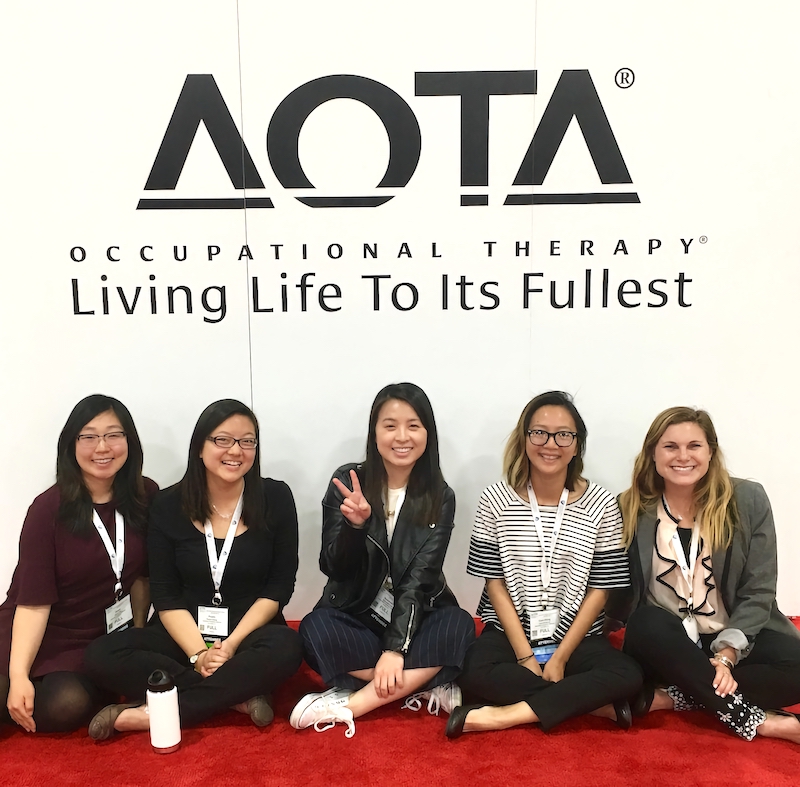
Fun at AOTA!
3. Comprehensive Exam
Although I have officially finished my finals, I still have the comprehensive exam left! This is an exam that is a compilation of content from the following seven courses: OT 515 Advanced Neuroscience, OT 518 Quantitative Research for Evidence-Based Practice, OT 525 Qualitative Research for Evidence-Based Practice, OT 534 Health Promotion & Wellness, OT 538 Current Issues in Practice: Adulthood and Aging, OT 540 Leadership Capstone, and OT 545 Advanced Seminar in Occupational Science. Although this is a daunting exam, it is also a very meaningful way to complete the program. As this is an opportunity to look back at the foundational courses that have built my occupational lens. I am confident that upon completion of this exam I will have the tools I need to complete my final fieldwork and pass the National Board for Certification in Occupational Therapy.
4. Electives
I have appreciated this last semester of classes because I was able to take courses that I have a particular interest in learning more about. In addition to gaining a unique view into the theory and intervention of sensory integration I was also able to hone different styles of therapeutic communication. Not only were these courses full of interesting content, but also the opportunity to take classes with students from other cohorts and have professors for the first time. I loved that this semester was different from all the others and allowed me to meet new people and learn new concepts.
Finally, as this is my last blog post, I wanted to take a moment to thank you all for reading and emailing us such thoughtful questions. I am grateful for the opportunity to meet and speak with so many of you as you learned about OT! Fight On!
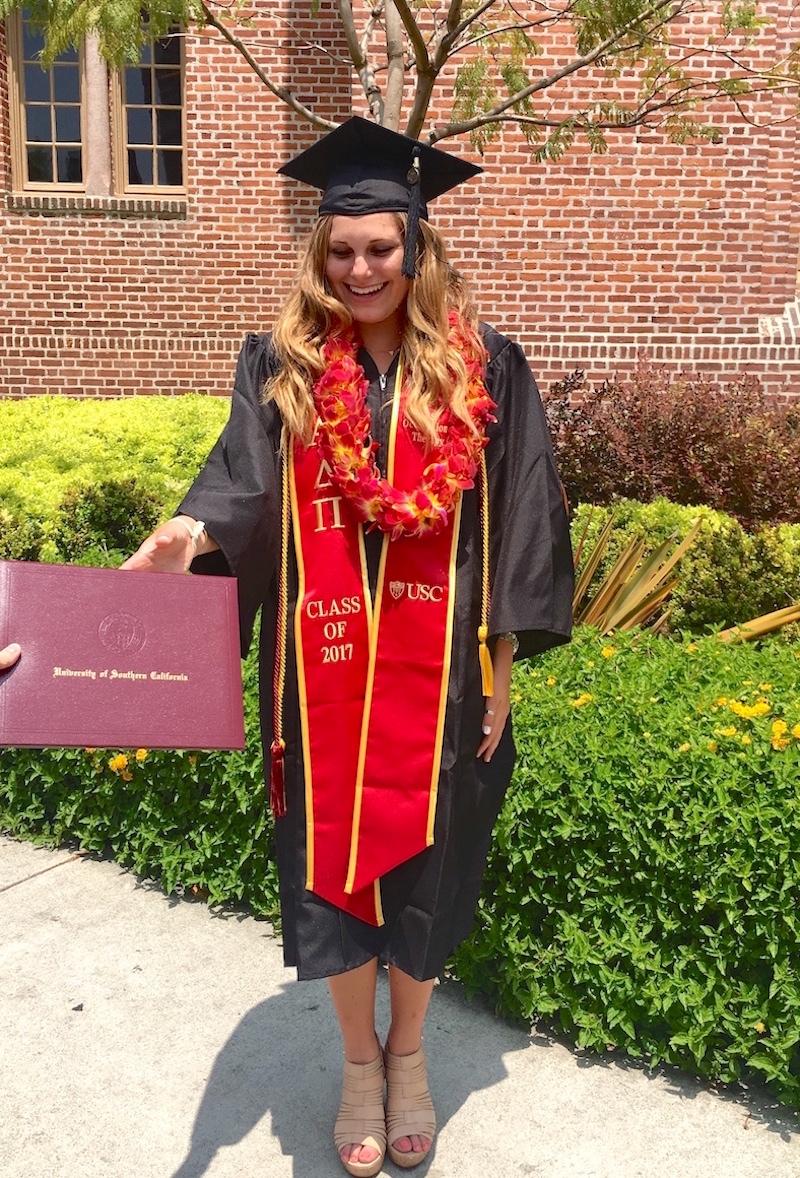
Ready to receive another diploma from USC!
⋯

Australian Externship Reflections ⟩
April 17, 2018, by Caroline
As I mentioned in my previous blog post, I was given the opportunity to travel to Australia for my two week Leadership Externship. What an experience it was! We were hosted by Griffith University’s OT Program on the Gold Coast of Australia, known for its beaches and surfing competitions.
At Griffith, we were able to sit in on first, second, and third year classes, which was a cool experience, both to meet the students and faculty and to see what their curriculum is like! In Australia, the education required to become an OT is a 4 year Bachelor’s degree, whereas in the US it’s a Master’s Degree. The program there emphasizes the Canadian Model of Occupational Performance and Engagement as the lens through which they view evaluation, treatment, and client interaction. I was not very familiar with this model beforehand, but it was a very occupation-centered approach to OT, which I appreciated learning more about! In comparison, our program at USC introduces a number of different models, which we can choose to utilize when we feel they fit the clinical situation. The classes were very interactive and full of discussion and team-based activities, which reminded me of our classes at USC.
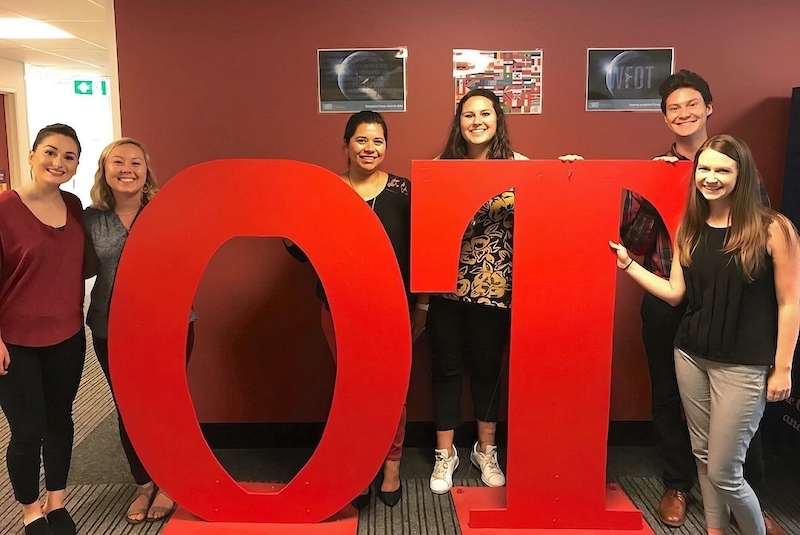
The USC Chan Australia team at Griffith OT!
In addition to sitting in on some of the classes at Griffith, we also had the opportunity to see a number of different clinical sites in the area. Here, we gained an appreciation for their universal healthcare system and some of the unique programs they were able to put in place.
We visited Galleon Gardens, a residential older adult facility. One thing that stood out out to me there was the incredible attention to detail in their newly-renovated memory care wing. Each resident’s door had a different design to help them recognize it as their own. The floor panels ran the same direction throughout the wing to prevent residents from getting “stuck” or confused by the floor. Cabinets for the nursing staff had hidden latches so residents wouldn’t see handles and try to open them. An OT had been consulted when designing the space, so not only was it beautiful and homey, but it was purposeful. The other standout at Galleon Gardens was the work they’re doing with texture-modified foods for residents with modified diets. The staff uses molds to make the pureed foods look like their original form, making the food more appealing to eat; it’s unlike anything I’d ever seen before!
We spent a couple mornings at Gold Coast University Hospital (GCUH), meeting with staff, touring the floors, and observing fourth-year students in their placements there. We also spent a day at Lady Cilento Children’s Hospital (LCCH) [now the Queensland Children’s Hospital] in Brisbane. Both of these hospitals were quite new, so the facilities and design were incredible — both had really state of the art rehabilitation spaces. At GCUH, they had a simulated grocery store, kitchen, and apartment called the LIFE Space as well as a car (put on the roof by crane!) for patients to safely practice activities they’d be doing when they returned home. LCCH had a beautiful outdoor space with a wheelchair-accesible swing and rock climbing wall (great for kids who are able to get outside!) as well as some cool treatment rooms. My favorite was one of the craft rooms, which was designed so that kids could get as messy as they wanted and could paint the floor, walls, and ceiling; the staff could just hose off the entire room and the water drained out through the floor!
Finally, we got to visit a couple of mental health sites in the area. Headspace was an outpatient mental health site for adolescents and young adults. The space had a cool feel to it and the staff dressed really casually, so it felt like a very inviting space for the population that it served. We also visited with the Homeless Health Outreach Team, and learned about the work they’re doing in the community. In Australia, OT seems to have a larger presence in mental health than it does in the US at the moment. OT has its roots in mental health, and we’re definitely working on increasing our presence in mental health in the US. Seeing how well they’re doing it in Australia served as a great example for what we’re working towards here!
Not only did we learn from all of the students, faculty, and practitioners we met during our visit, but we also got to share what we know with the folks at Griffith. We gave a presentation that covered OT practice and education in the US (and how it differs from Australia), some highlights about our programs at USC, and we also gave some advice to students going out on their first long placement (as we’ve already completed our first 12 week Level II Fieldwork placements). We also covered the Summer Occupational Therapy Immersion program run by Global Initiatives here at USC Chan. Some of the students we met at Griffith will be coming out here this summer for the SOTI program, so I’m looking forward to reconnecting with them and showing them around LA!
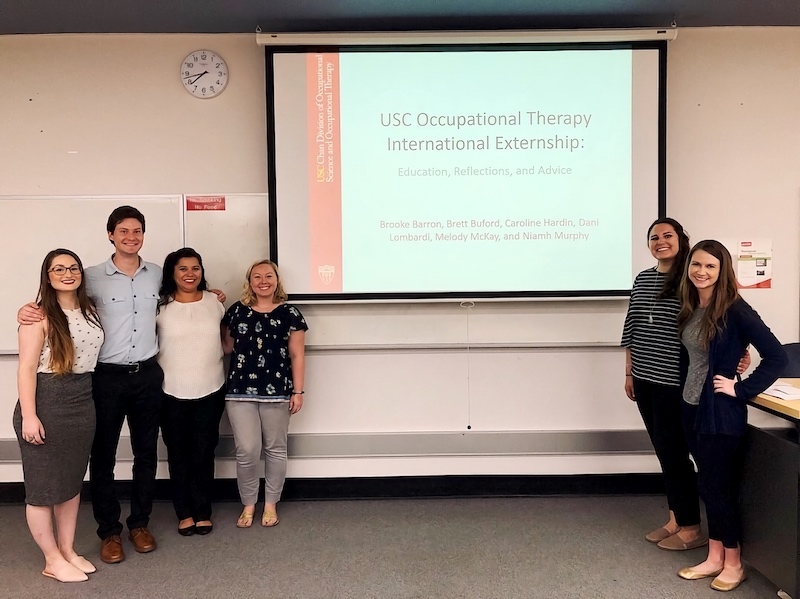
Presenting to the Griffith students and faculty!
The two weeks of externship are conveniently scheduled right next to spring break, so I was able to spend that week traveling in New Zealand and Australia. I spent the first three days of spring break in New Zealand, which had the most beautiful green rolling hills (and lots of sheep!). I even drove on the opposite side of the road for one day, which was quite the mental exercise 😊.
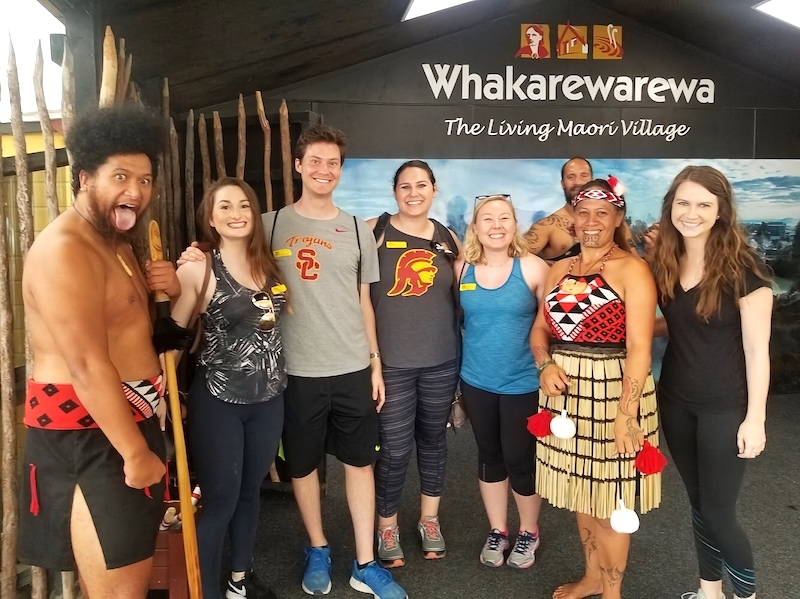
The Maori are the indigenous people of New Zealand. We spent a day touring their village, which included a cultural performance.
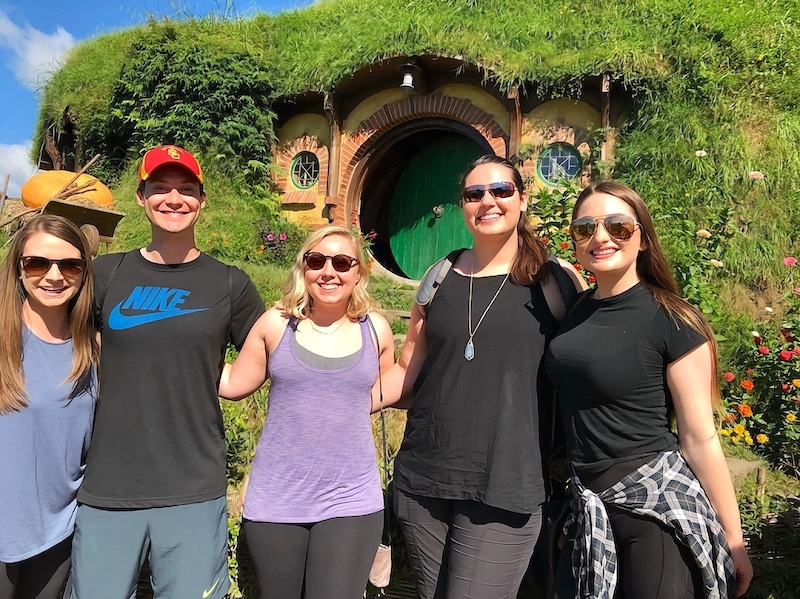
We also spent a day touring Hobbiton, which was used as the set for the Lord of the Rings and The Hobbit trilogies!
I spent the second half of spring break in Sydney, Australia, where we saw the Sydney Harbour Bridge, toured the Opera house, and did the coastal walk from Coogee to Bondi Beach. With the beaches, the big city, and so much going on, Sydney actually reminded me a lot of LA!
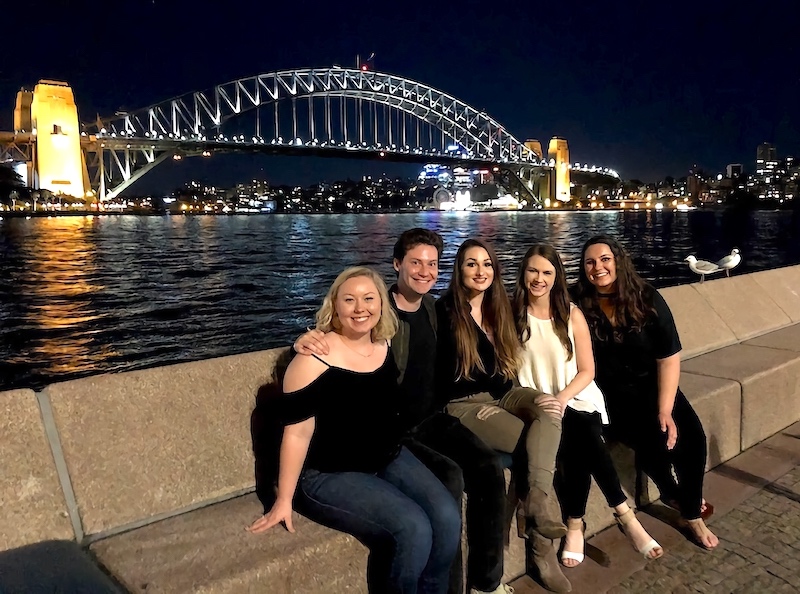
Sydney Harbour Bridge

The coolest pool, right next to Bondi Beach!
The two weeks of externship were jam-packed with classes and site visits, but we also made time to do some sight-seeing! On the Gold Coast, we had some time to lounge by the beach, but my favorite excursion was to the Currumbin Wildlife Center, where we got to pet kangaroos, hold koalas, and see other wildlife unique to Australia (definitely checked off a couple bucket list items there!).
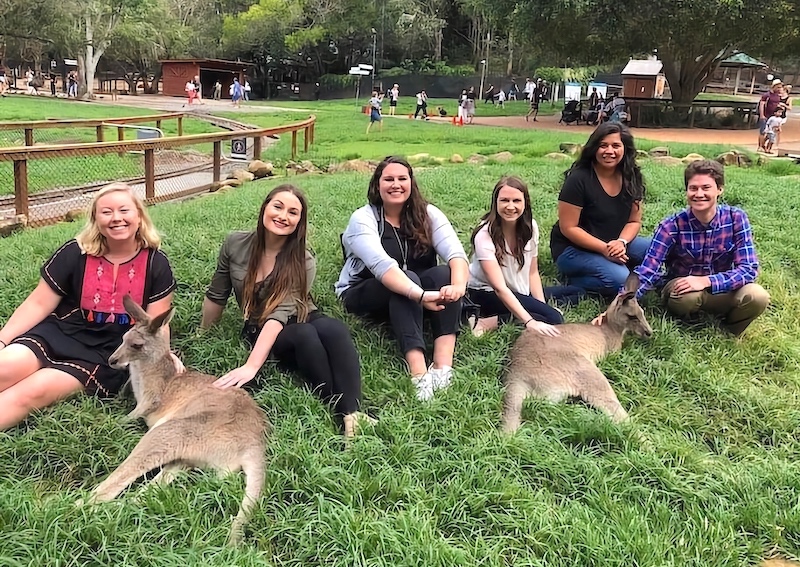
I could have spent all afternoon lounging with these kangaroos!
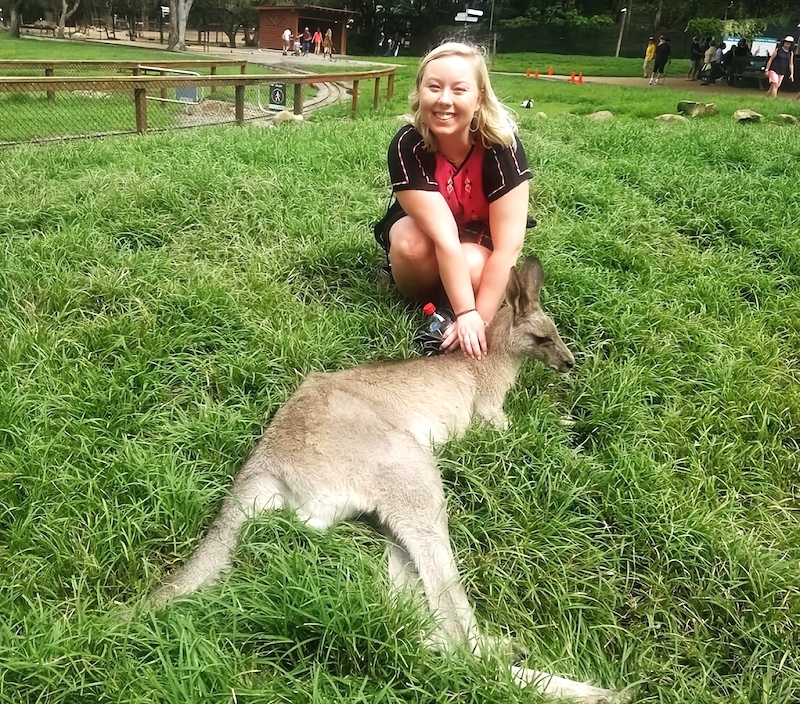
The Kangaroos were SO soft!
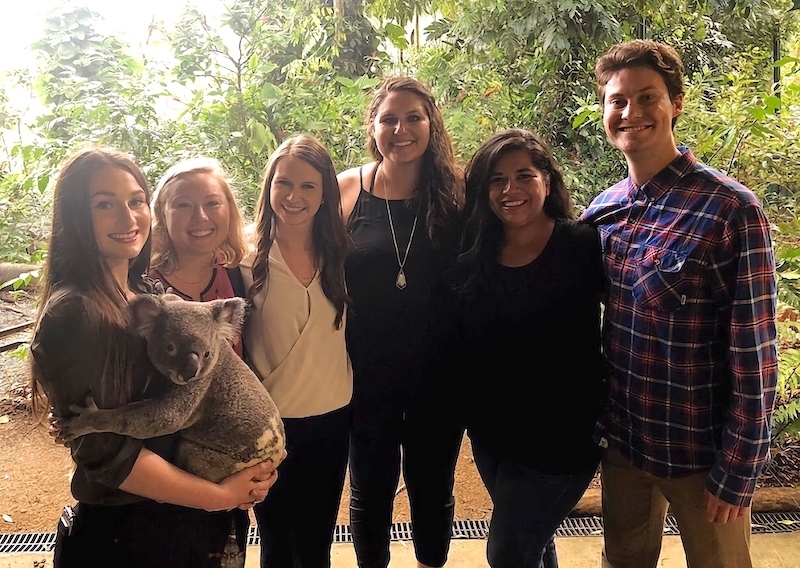
Meet Yorkie the Koala — he’s a popular fella
Overall, this experience made me think about OT in new and different ways. The healthcare and education systems in Australia are quite different from the systems in the US. Despite those differences, occupational therapy as a profession was quite similar, which was very cool to see! I’m so grateful this opportunity was part of my OT education, as it encouraged me to think more globally about my future profession. It was really incredible to hear about my classmates’ diverse experiences when we all got back together, which reminded me that there are OTs doing incredible work across the world! Make sure to check out Kaitlyn’s blog post about her experience in Denmark and Erika’s blog post about her externship in Ireland.
⋯
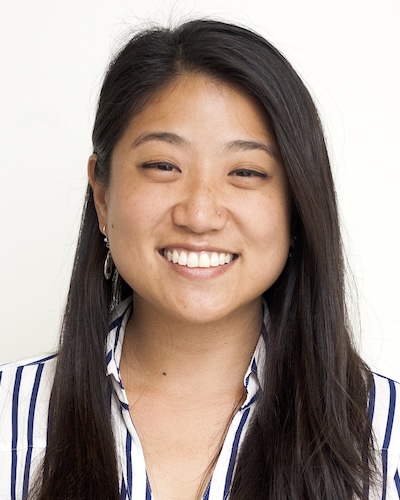
Adventures in OT in Ireland ⟩
April 4, 2018, by Erika
Externships International What are OS/OT?
As part of our Leadership Capstone course that rounds out our final semester at USC Chan (boy, did time FLY!), we are given an opportunity to build our own externship experience during the two weeks leading up to Spring Break. In recognition that OT is a broad field that can work with populations across various settings and life stages and that each students’ journey through OT is highly individual; this is a great opportunity for students to pursue their individual interests and curiosities about the profession while demonstrating their own knowledge and leadership in OT.
The creativity of my fellow classmates’ externship experiences was inspiring! Some students stayed local and observed ergonomic and lifestyle changes that their friends could implement to prevent work-related injuries at their desk jobs. Other students chose to shadow faculty in order to see what goes into working in academia. Still, others expanded upon their community-based OT programs that we crafted last semester and furthered their research and execution to make these programs viable and one step closer to becoming realized.
Additionally, a great number of students went international. As Kaitlyn mentioned, our Global Initiatives office offers organized trips to places like Denmark, Japan, Ghana, Korea, and Australia where you can go with a group of your classmates to visit various OT facilities and universities abroad.
I chose to go international as well! I ended up going to Ireland and with the help of a few classmates and colleagues who were either from Ireland or had previously gone to Ireland during their externships, I was able to set up 8 independent site visits with OTs in 4 different cities across the country. In choosing Ireland, I really wanted to understand what the strengths and barriers were in practicing OT within a public healthcare system, explore interventions that prove successful in Ireland that may not be in America and the cultural implications of that, and gain a sense of the student experience and curriculum for those currently learning OT in Ireland.
My overall experience exceeded any of my expectations and goals. Here is a map and a list of sites I was able to visit:
Map of Externship in Ireland
(Note: Yellow Points = OT Site Visits)
Co. Dublin
Dublin City University & Trinity University
I spoke with OTs and OT students who work in Student Disability Services.
National Rehabilitation Hospital
Inpatient Rehab observation of their Prosthetic Orthotic Limb Absence Programme, Rehabilitation Training Unit Group, Brain Injury Program, and discuss the student experience with Trinity fieldwork students that were placed there.
Co. Galway
Galway University Hospital
I observed OTs working in acute care in the following areas General Med (renal, infectious disease, and endocrine), Med Surgery, and Cardiac ICU.
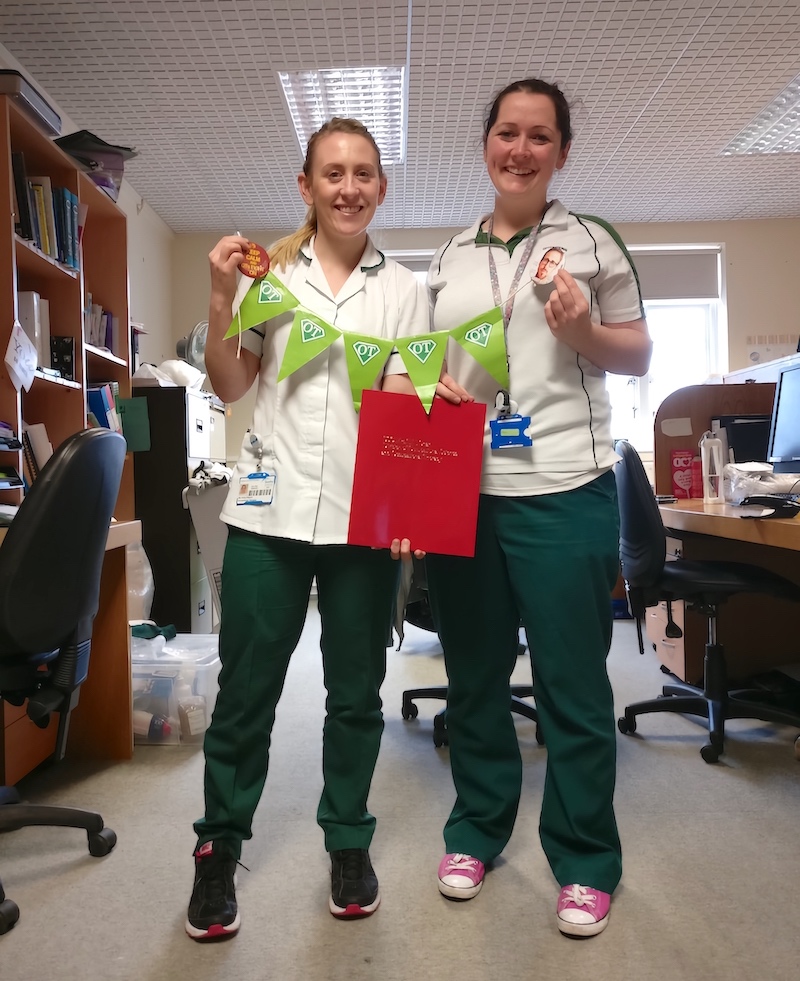
The lovely OTs (Kirby & Gillian) who graciously let me shadow them on their rounds at Galway University Hospital
National University of Ireland, Galway (NUIG)
I met with the Practice Education Coordinator who graciously set me up with many of her OT contacts in Ireland.
Co. Westmeath
Clonbrusk Resource Centre
I spoke with American OTs who have been in Ireland for over 15 years practicing in pediatrics and observed an OT evaluation with a new client.
Co. Cork
St Finbarr’s Hospital
Spoke with an OT working in the hospital’s Inpatient Rehab Geriatrics unit.
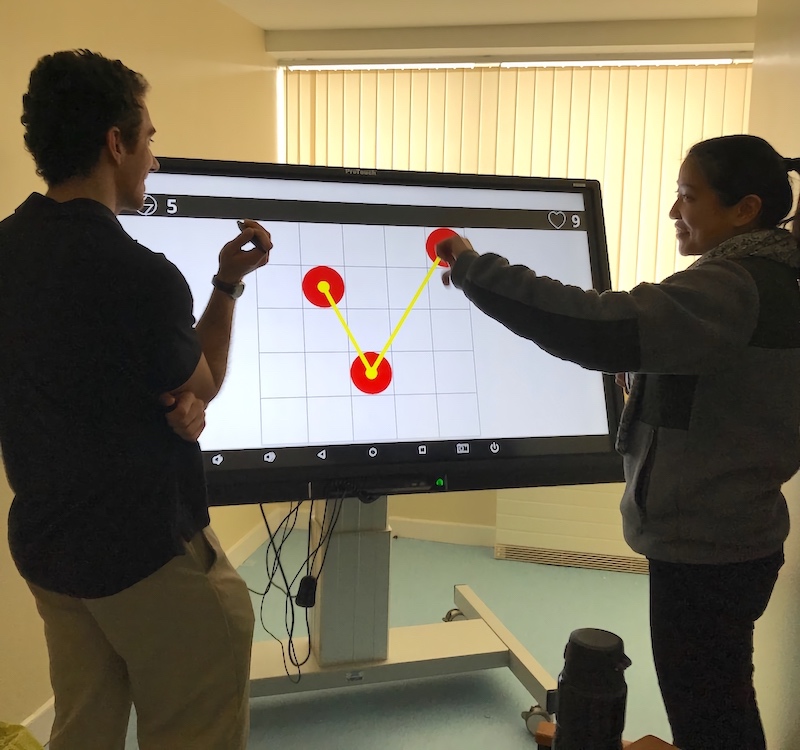
Joe and I playing visuospatial and memory games on the big screen TV at the inpatient Geriatric unit at St. Finbarr’s Hospital, Cork
University College Cork (UCC)
Along with my classmate, Joe, we presented on our community-based OT programs to graduating OT students at UCC. Additionally, I was able to sit in in a couple of lectures about interventions that are being introduced into Ireland from other parts of Europe as well as a lecture on working with transgendered clients in Ireland.
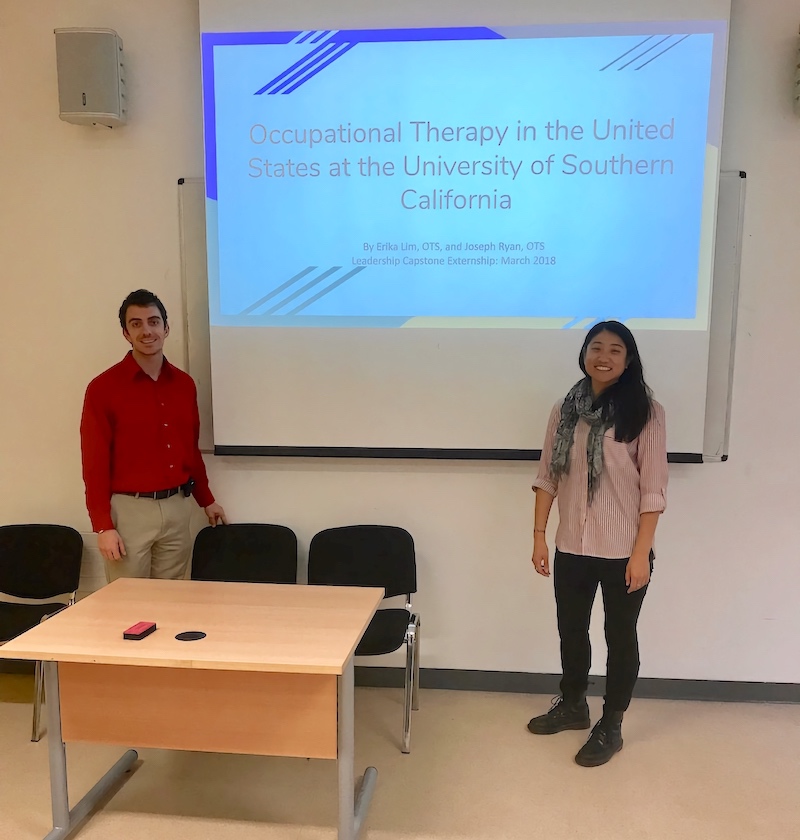
Joe and I presenting on our community-based OT programs to UCC OT students
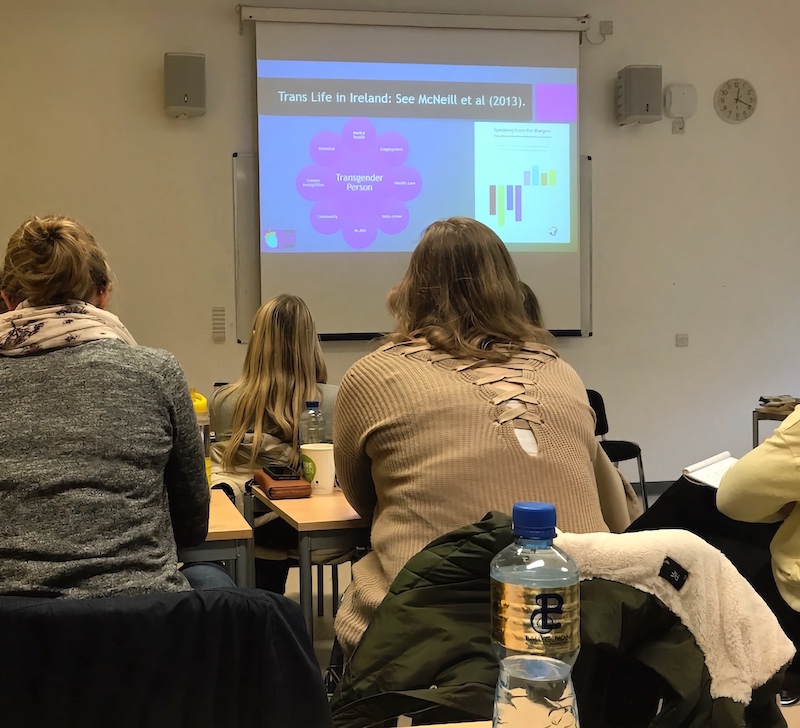
Sitting in on a lecture about working with the transgendered community in Ireland
On top of this, I was able to travel and sightsee the gorgeous countryside in between site visits. From the terrifying adventure of learning how to drive on the left side of the road to observing Irish families playing in the snow on their first snow day in 10 years to exploring the towering Cliffs of Moher and the teeny artist town of Dingle to celebrating St. Paddy’s day in Dublin, Ireland was nothing short of extraordinary and this was most often shown through the warmth of its people and culture.
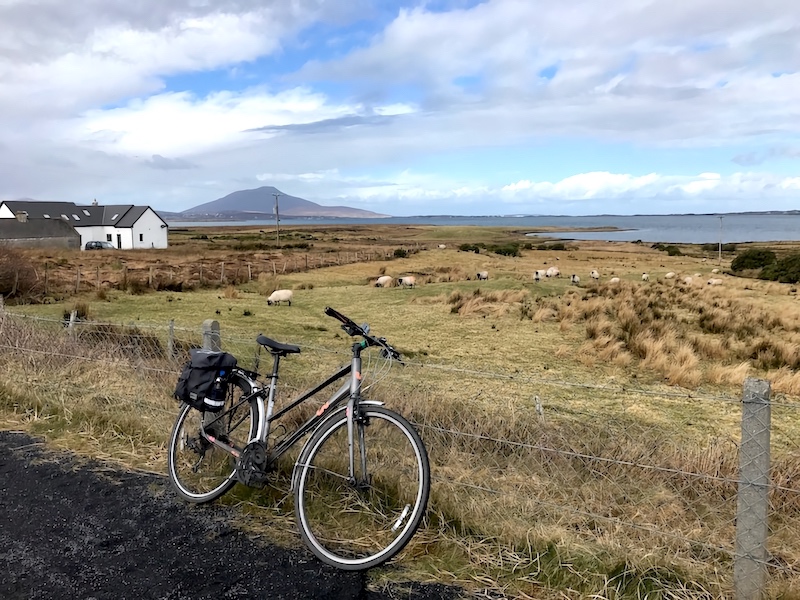
Biking the Greenway from Achill Island to Newport
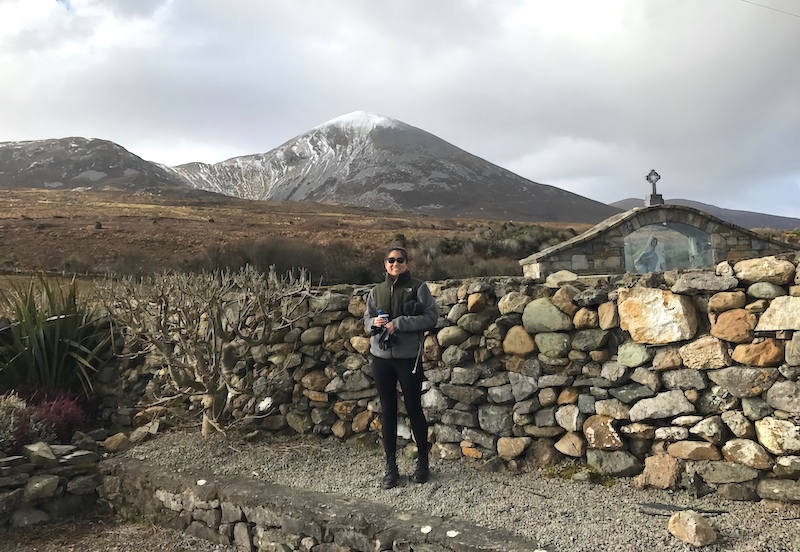
One of my biggest achievements: climbing Croagh Patrick, the mountain behind me!
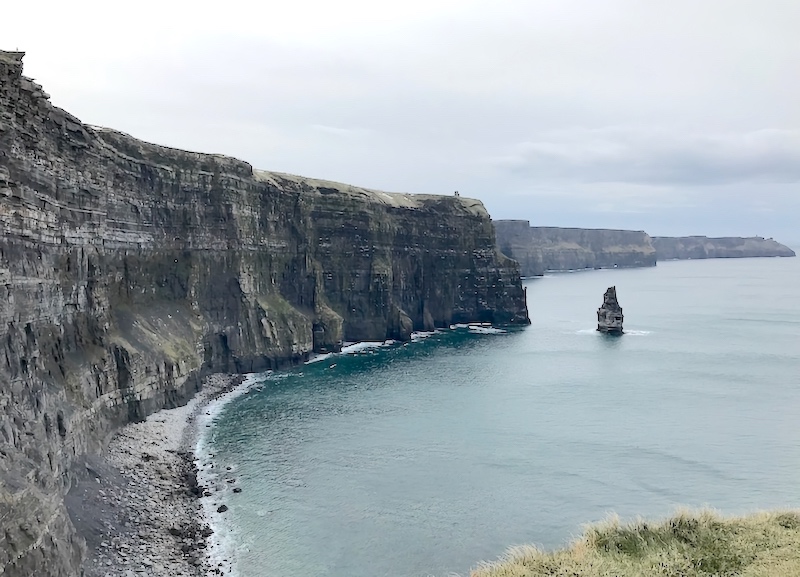
The Cliffs of Moher. Breathtaking.
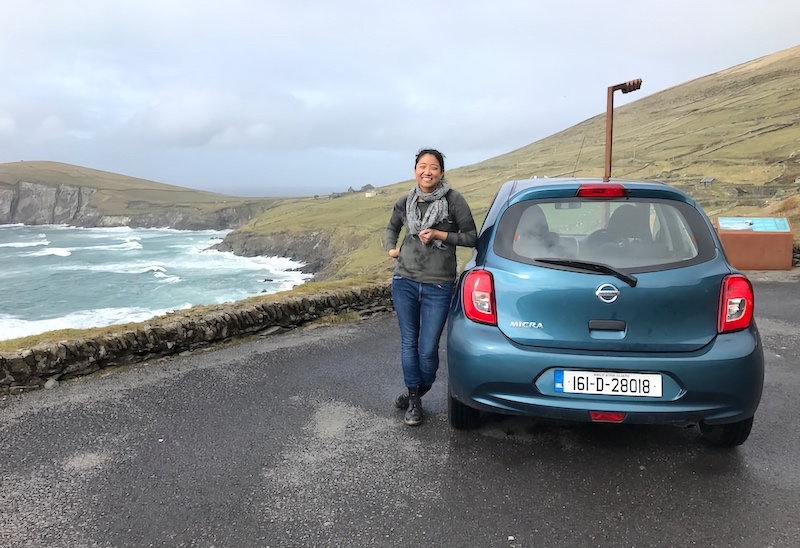
My rental car Bertie and me. I fell in love with teeny cars.

St. Paddy’s day at the Guinness Storehouse, Dublin!
Sláinte! (Cheers! in Irish)
⋯





